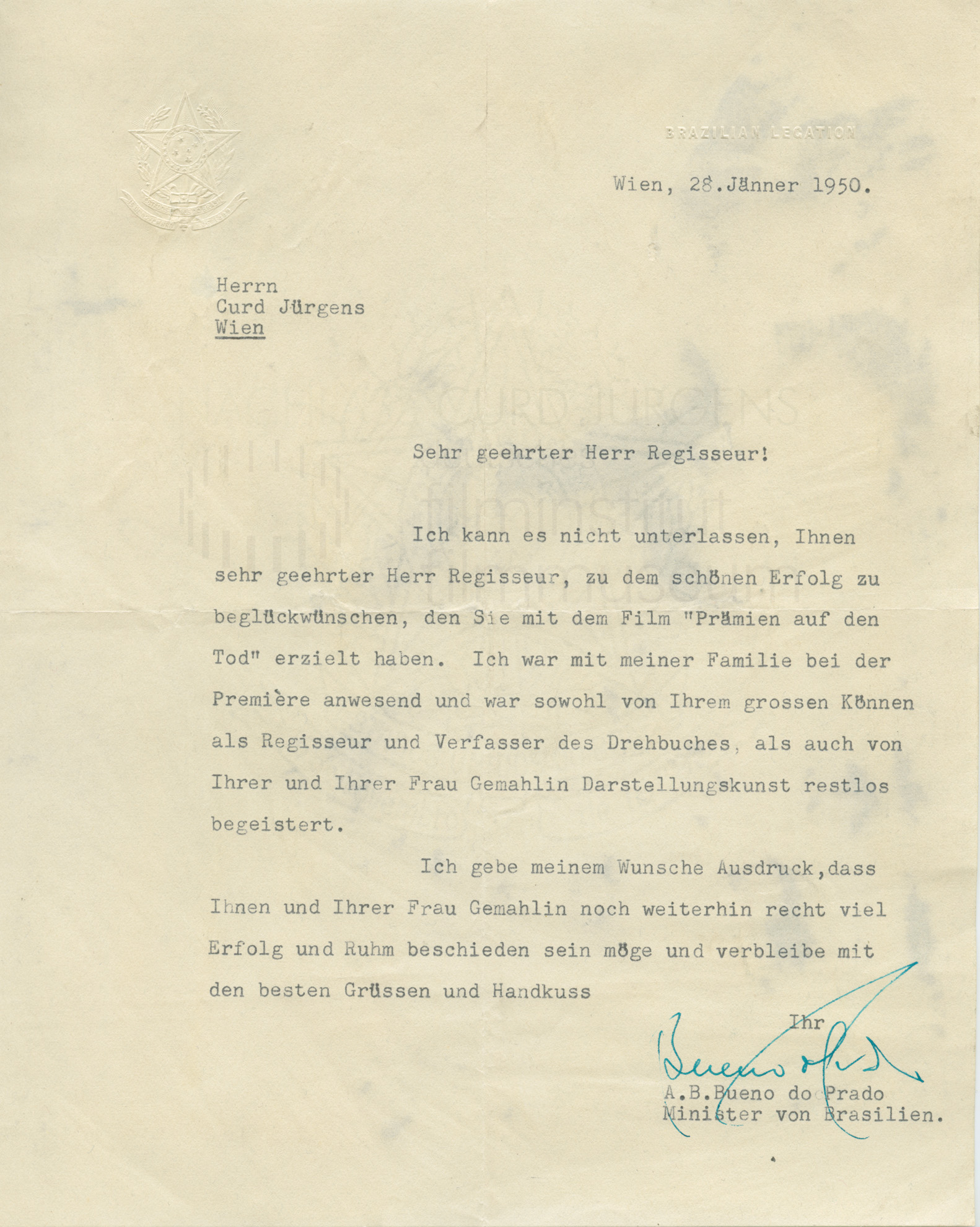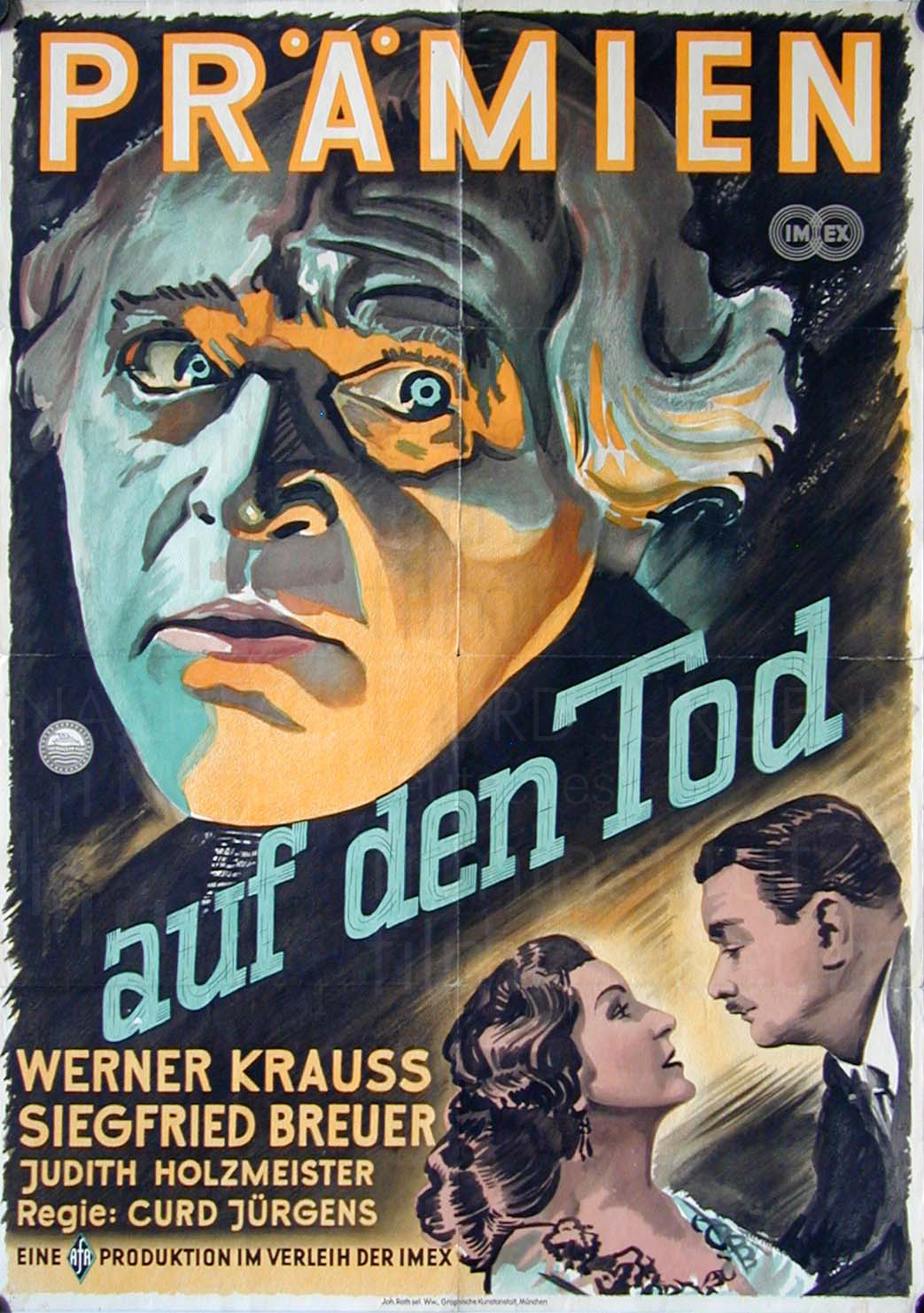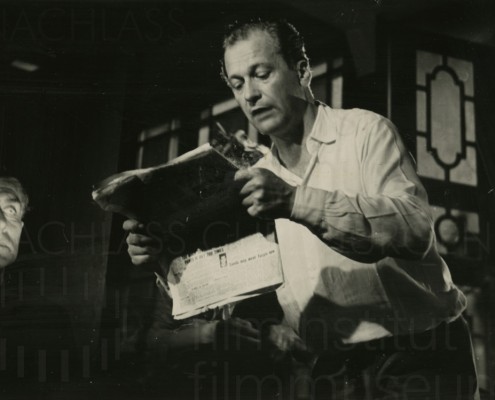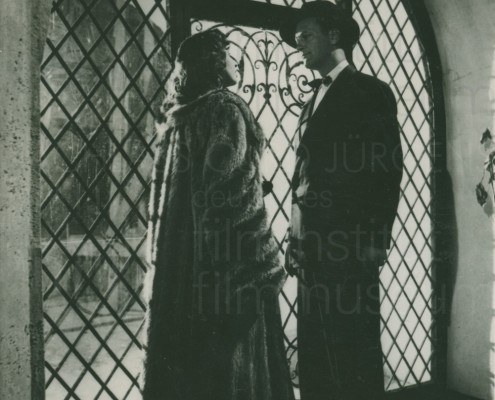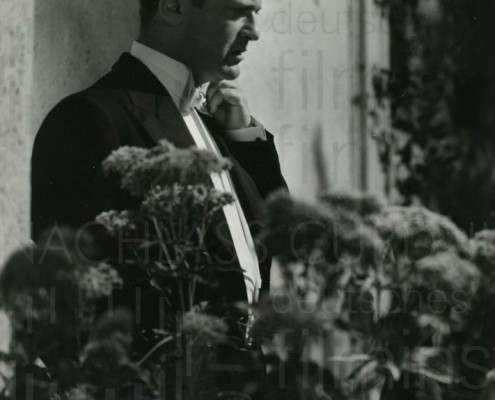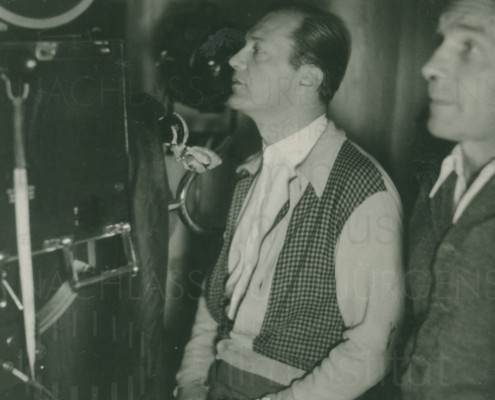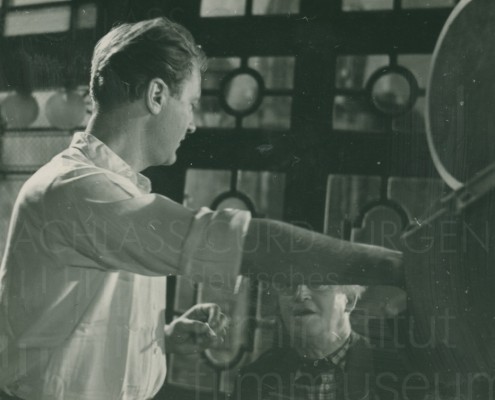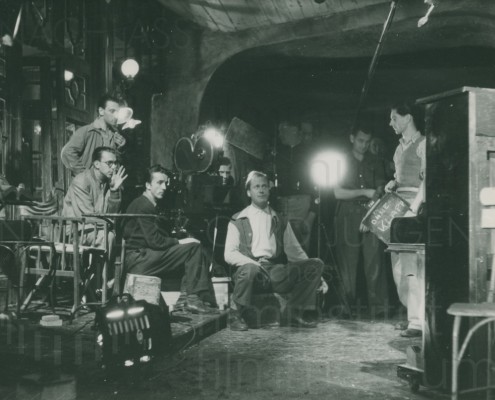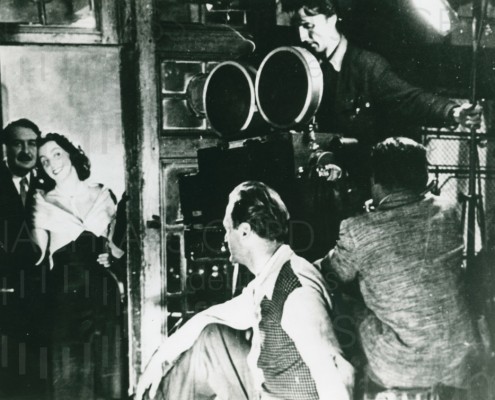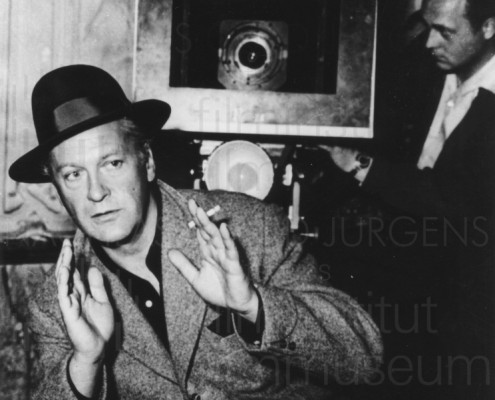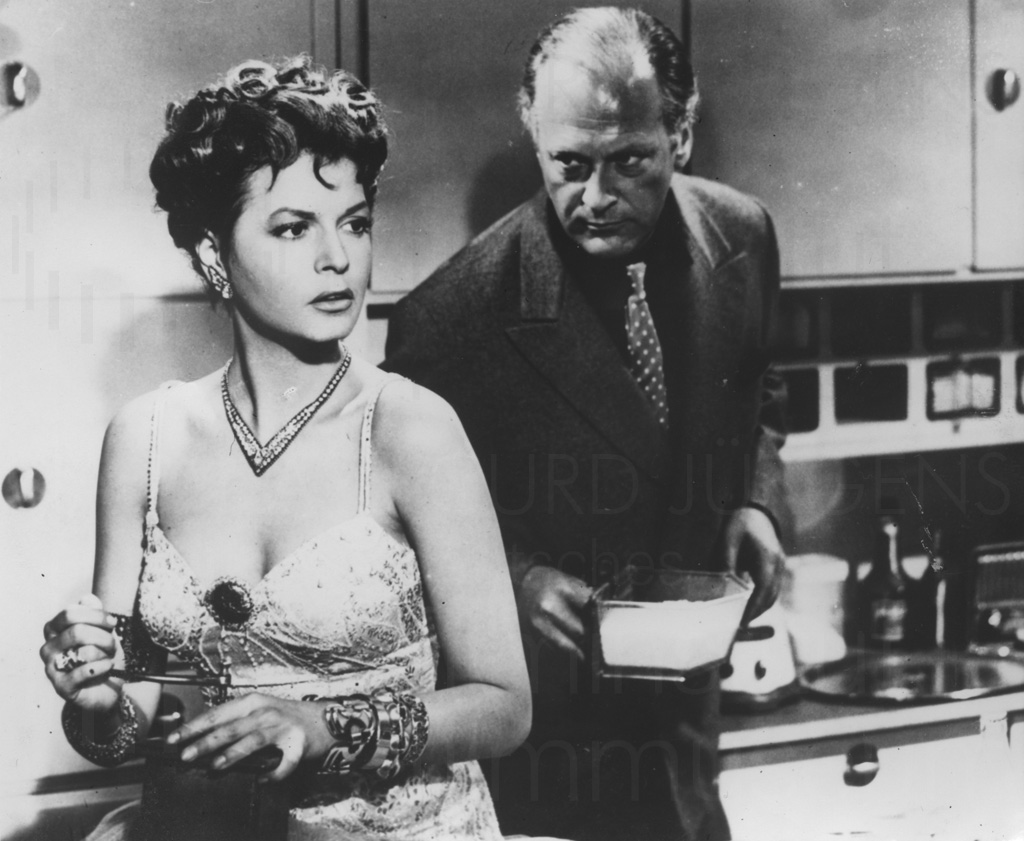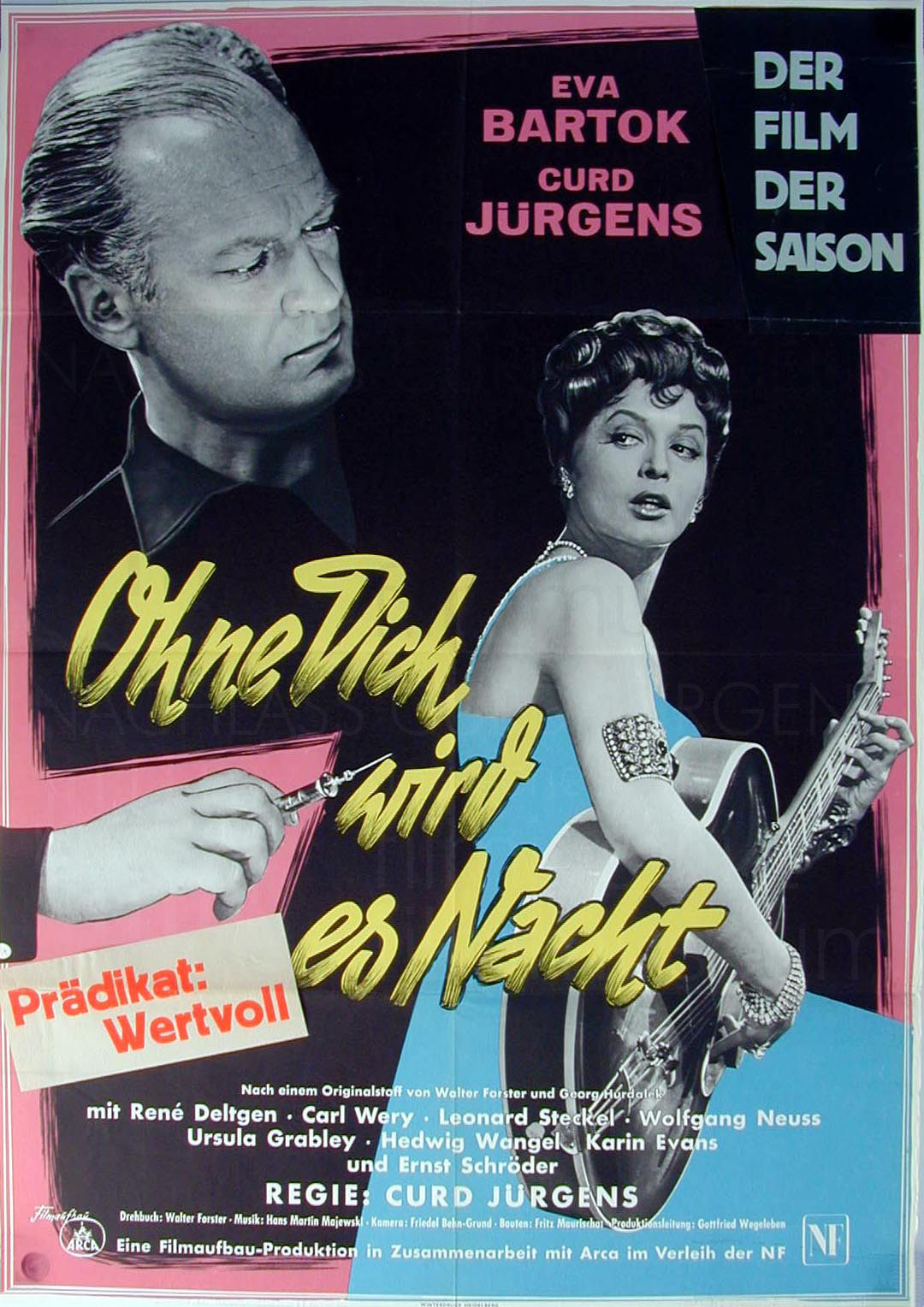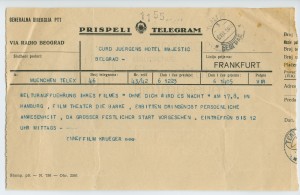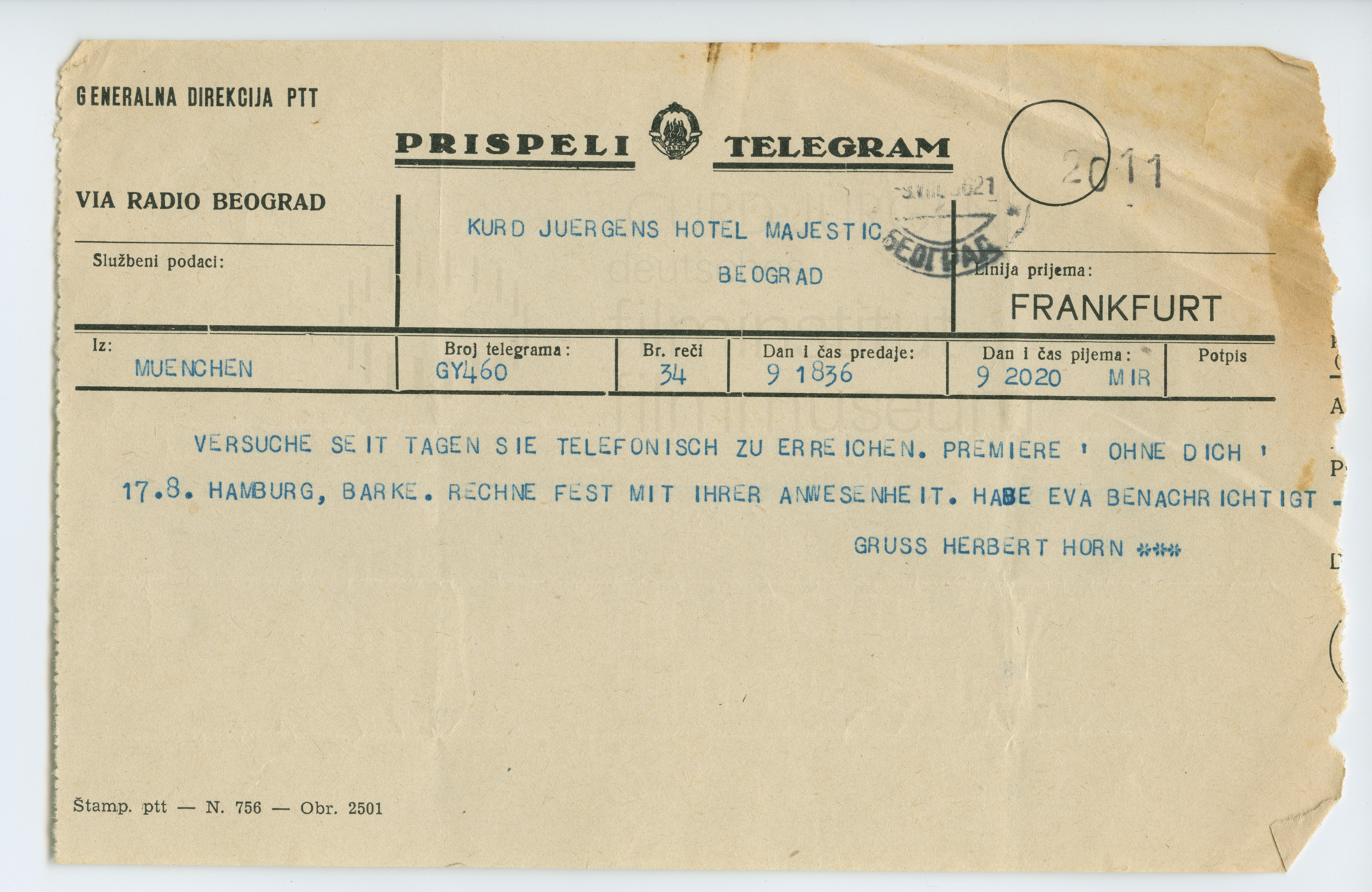MEMORIES OF A FILM PROJECT
By Hans Abich
In 1956 some of us in Göttingen wanted to make a motion picture in our film construction company Filmaufbau GmbH for Kurt Schorcht, our main distributor in Munich. The film was about drugs which was becoming a highly topical theme. We had made three important preliminary decisions and taken Curd Jürgens on board as principal actor, Wolfgang Staudte as director and Franz Geiger as screenwriter.
My friend and production partner Rolf Thiele and I went on a finance trip. When we came back to Göttingen, Franz Geigers’ treatment, with the help of Wolfgang Staudte, had been turned into a screenplay in which we, with the best will in the world, could no longer identify “our” material. But our requests for changes met with opposition on both their parts. The hope of reaching agreement was costly both in time and nervous energy, which at times meant the same thing.
It came to the point where I could only see one radical solution: to ask them, two people we valued highly and who we had brought together in the first place, to forgo the agreed development of the film project – all above board with full payment of their fees. To prevent any bad blood over this clash, I told them upon leaving that I would do my utmost to make a film with each of them in the future. This time we parted chivalrously, as it were …
Part of the sets was already standing in the studio. The question was now becoming one of costs. I did not want to give up (yet). In any case, I had never made any incisive decision of that order. When I telephoned the distributor to inform him of change of screenwriter and director, he sent round an amenable security commissioner in the shape of his legal advisor. After our consultation, our potential emergency helper reported back to his boss that the company wasn’t seaworthy but might just about manage a crossing of Lake Constance. That was pretty much his expert opinion. But the revered and veteran distributor Schorcht, after a pause for thought, pulled the plug on the project. In Göttingen we were now well and truly laid bare.
Rolf Thiele was at my side again as we rushed off to Chiemsee to see Curd Jürgens. We knew about each other but had not met personally yet. In conversation with the star at his rustic house-bar we talked through the film – the one we were thinking of – in a way that made us think Jürgens was the only person who stood by our project with a full understanding and a proper conception of his role in it.
We slept on it and over breakfast I came out with an audacious but reasoned plan: I would offer Curd Jürgens the position of director and I would ask him to narrate the story of his and our joint film, there and then that very day, and we would record it on tape. The working title of the film was to be “Without you it becomes night”. From the tape I made sure that I could create a replacement screenplay in our not hopeless necessity. Good old Rolf still looked a bit anxious. But I was familiar with Curd Jürgens’ only work as director. It was PRÄMIEN AUF DEN TOD, an Austrian film made in 1949 with the woman who was then his spouse, Judith Holzmeister. In its time this film had made a huge impression on me, both in style and tracking. Thiele drew hope from this too. Jürgens was clearly impressed by my faith in him and said he felt up to this unfamiliar sharing of responsibility. He had enjoyed our visit.


